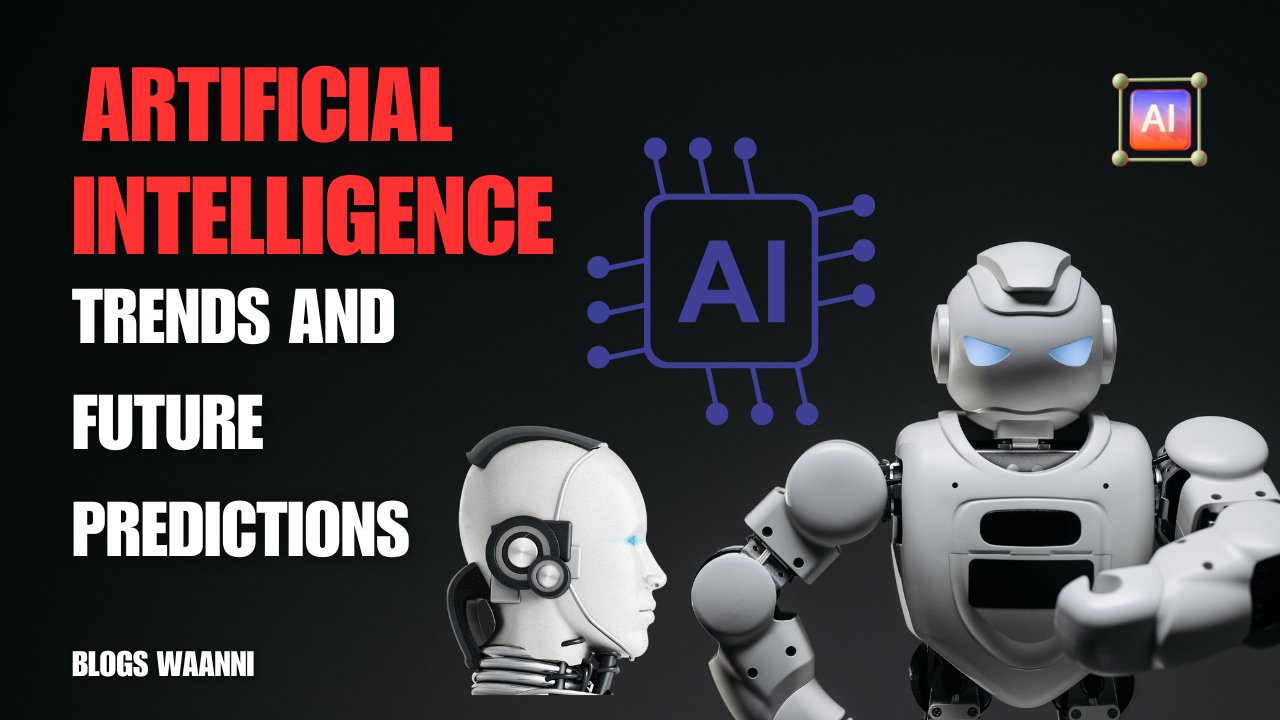Artificial intelligence (AI) has been a hot topic for several years, but recent advancements and applications have brought it into the spotlight like never before. From transforming industries to raising ethical questions, AI’s impact on our world is profound and multifaceted. In this blog, we will explore the latest trends in AI and predict its future trajectory.
Current Trends in AI
1. Generative AI
Generative AI, particularly models like OpenAI’s GPT-4 and Google’s BERT, has made significant strides. These models can generate human-like text, create art, and even compose music. The applications of generative AI are expanding, with companies using it for content creation, customer service, and even software development.
2. AI in Healthcare
AI is revolutionizing healthcare by improving diagnostics, personalizing treatment plans, and predicting patient outcomes. Machine learning algorithms analyze vast amounts of data to identify patterns that human doctors might miss. AI-driven tools are also aiding in the discovery of new drugs and the management of chronic diseases.
3. Autonomous Vehicles
Self-driving cars are no longer a futuristic dream but a reality being tested on roads worldwide. Companies like Tesla, Waymo, and Uber are at the forefront, using AI to navigate and make real-time decisions. While fully autonomous vehicles are still a few years away from mass adoption, the progress is undeniable.
4. AI in Finance
The finance industry is leveraging AI for algorithmic trading, risk management, and fraud detection. AI models can process large datasets faster and more accurately than human analysts, leading to more informed decision-making. Robo-advisors are also becoming popular, offering personalized financial advice based on AI analysis.
5. AI and Cybersecurity
With the increase in cyber threats, AI is becoming essential in cybersecurity. AI algorithms can detect anomalies and potential threats faster than traditional methods. By analyzing patterns in network traffic and user behavior, AI can preemptively identify and mitigate attacks.
Ethical and Societal Implications
As AI becomes more integrated into our lives, it raises several ethical and societal concerns:
- Privacy: AI systems often require large amounts of data, raising concerns about data privacy and how personal information is used.
- Bias and Fairness: AI algorithms can inadvertently perpetuate biases present in the data they are trained on, leading to unfair outcomes in areas like hiring, lending, and law enforcement.
- Job Displacement: While AI creates new opportunities, it also poses a threat to jobs that can be automated, leading to potential economic displacement.
Predictions for the Future
1. Enhanced Human-AI Collaboration
The future will likely see more seamless collaboration between humans and AI. Instead of replacing humans, AI will augment human capabilities, enabling more efficient and innovative solutions to complex problems.
2. AI Governance and Regulation
As AI continues to evolve, there will be a growing need for robust governance and regulation. Policymakers and industry leaders will need to work together to create frameworks that ensure AI is developed and used responsibly.
3. AI in Education
AI will play a significant role in transforming education. Personalized learning experiences, AI tutors, and data-driven insights into student performance will become more common, enhancing the quality of education worldwide.
4. Breakthroughs in AI Research
We can expect continued breakthroughs in AI research, leading to more advanced and capable systems. Areas like quantum computing and neuromorphic engineering hold promise for the next generation of AI.
Conclusion
The rise of artificial intelligence is one of the most transformative trends of our time. While it offers immense potential to improve our lives, it also presents significant challenges that must be addressed. By staying informed and proactive, we can harness the power of AI for the greater good and navigate the complexities it brings.
As AI continues to evolve, it is crucial to foster an environment of collaboration, innovation, and ethical responsibility. The future of AI is not just about technology; it’s about creating a world where AI enhances human potential and contributes to a better, more equitable society.



